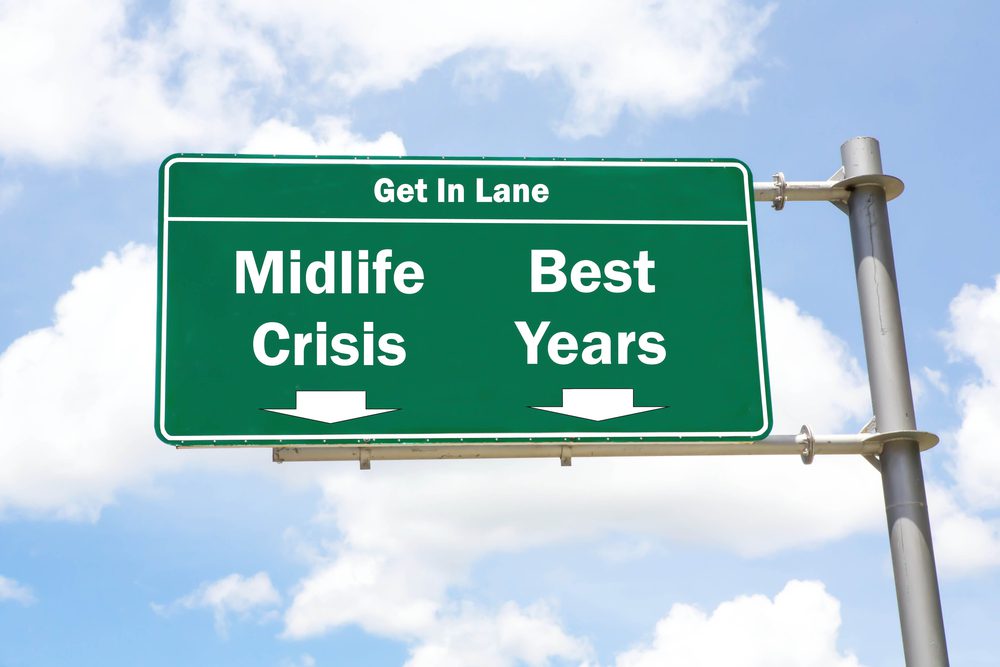What is a midlife crisis, and how can you manage it?
You get to “that age” when the world stops for a second and you feel overwhelmed because your thoughts are coming like fireworks upon you. But instead of bringing you joy, these fireworks scare you so much. You struggle with your emotions; you’re starting to understand that you’re no longer young and that you can’t do certain things anymore without looking ridiculous. This is what specialists call a “midlife crisis.”
A midlife crisis is defined as a stage of life transition during which an individual experiences difficulties with identity and self-assurance. It affects both men and women and can occur at any age between 40 and 60.
Most people who experience this crisis are in their midlife, having settled into their jobs for the most part, and may discover they haven’t accomplished all of their goals. If you’re suspicious that you might go through a midlife crisis as well, but you’re not 100% sure, check out these signs. And maybe think that this crisis isn’t actually a crisis at all! It’s more like another chapter in your life when you’re on your way to discover your true self and start making some positive changes.

1. Impulsive behaviour
You used to be a calm person before, but all of a sudden you feel irritated by small things, and your behavior is becoming impulsive. This might be one of the first signs you’re dealing with a midlife crisis. A lot of individuals are trying to cope with these unbearable feelings by finding comfort in alcoholic beverages or drug use. Others are starting to eat way too much because they’re bored or stressed.
Yet none of these habits are healthy; in fact, they can damage your overall health pretty badly. Take a moment to reflect on this and try to find the root of your frustration. If it’s hard to cope with these feelings on your own, try to talk to a friend or a close family member. If you can afford it, you can seek help from psychologists.
2. Sadness and regret
Maybe you obsess over things you think you should have done differently in relationships or at work. This results in profound discontentment with the current moment and a propensity to ignore the positive elements of your existence.
This is something that most people experience at some point in life, and unfortunately, there is nothing like a “secret recipe” to make these emotions go away. Start slowly by thinking about what you’re grateful for and what makes you happy in your day-to-day life.
I am sure there are plenty of things that can be improved, but on the other hand, it’s more important to hold onto stuff that makes you the person you are: a great and worthy human being. And if it’s possible, stop comparing yourself to others. They may appear satisfied and happy, but you never know what’s really going on.
3. You’re always jealous of other people’s lives
This happened to all of us at some point in life. But if you find yourself focusing more on what others have and why they’re happier than you, it’s a clear sign you’re facing a midlife crisis. When you discover that you are spending more time thinking about other people’s pasts than your own, keep in mind that other people’s successes are primarily the result of changes and decisions that were not available to you.
Think about yourself and how you managed to get to this point in your life. I am sure there are plenty of things you’re proud of! Don’t let jealousy overcome your mind.
4. Boredom
Your everyday routine, which may include your job schedule or other obligations, may make you feel bored or, even worse, burned out. If you feel as though you’re often daydreaming about what your life would be like if you had chosen a different career path or gotten married to someone else, these thoughts may alter the present and cause you to lose focus on what’s right in front of you!
To cope with this particular sign of midlife crisis, you must be more present, plan things you’re excited to accomplish in the future, and appreciate who you are. Maybe you can achieve your goals someday because there is no age limit. Age is just a stereotype created by society.
5. Excessive focus on physical appearance and social status
People who are going through a midlife crisis are usually more concerned about their physical aspect and they want to make it better. Women want most changes starting with dyeing their hair in a completely different color, cosmetic surgery, or dressing more like a youngster. This is their way of saying “I don’t want to say goodbye to youth!” Instead of accepting a new chapter in their lives, some people attempt to cling to their youthfulness.

6. Changes in intimacy
Some people have an increase in their desire for intimacy, while others have a reduction in their desire for it. During a midlife crisis, a lot of people have doubts about their marriage or relationship, which ends in infidelity.
On the other hand, there are those people who think they’ve outgrown each other and think it’s time to end their relationships. Sadly, according to various statistics, the divorce rate after the age of 45 is increasing each year.
Midlife crises can be a common experience for both men and women after the age of 45. and it can feel like a constant struggle every day. However, there are some things you can do to make it easier. I asked some psychologists for book recommendations and one of them suggested “Midlife, No Crisis: An Audacious Guide to Embracing 50 and Beyond“. This book was released in 2021 and has a rating of 3.8 on Goodreads. It’s important to know that there is still a lot to enjoy in life at this age. You just have to believe it.
7. A huge desire to experience new things
This is a sign of a midlife crisis that’s connected to the one I’ve mentioned above. People who are usually frustrated about their lives, find no meaning and feelings in their relationships and want to experience new things. Maybe it’s traveling, switching careers, or dating someone younger.
A person experiencing a midlife crisis could go above and above in their quest for adventure or just try something new.
What causes a midlife crisis?
Once you hit midlife, negativity about aging may cause you to feel hopeless or less confident in yourself. You may be forced to consider how far you’ve come in life, or you may see this as just a stage of aging.
As we age, we face many changes, starting with the physical ones. Men experience issues with the prostate or heart changes, while women face menopause, which comes with a plethora of symptoms that may be hard to endure.
Another cause of the midlife crisis is the empty nest syndrome, which is also something that most seniors find sad, and they feel like there is no light at the end of the tunnel. Even a slight change in finances can be a factor in a midlife crisis.
Takeaway:
However, when things seem darker than they actually are, there are some ways to cope with a midlife crisis in a healthier manner. First of all, accept the change, acknowledge your feelings, no matter how bad or good they are, and try to focus on what you can change. There is no point in “arguing” with yourself about things that are beyond your control.
Try to reconnect with old friends, and if they’re in the same town as you, try to spend more time outdoors with them. If that’s not the case, try something new, like a hobby, or pick up an old one you used to enjoy.
In the end, if it’s possible, consider therapy. There is nothing wrong with asking for help when you need it. In fact, you might discover it will do wonders for your mental health!
You may also be interested in reading about morning depression and how can you overcome it.














